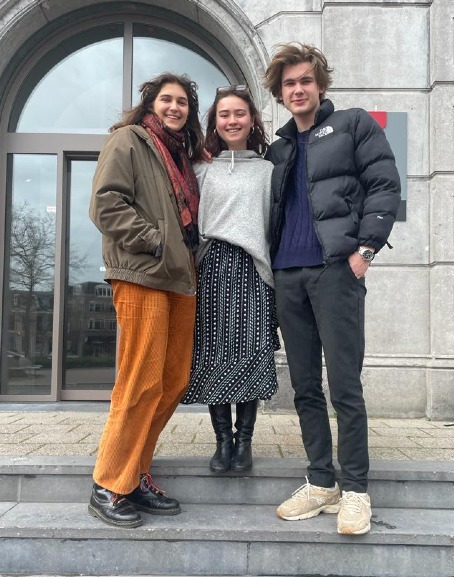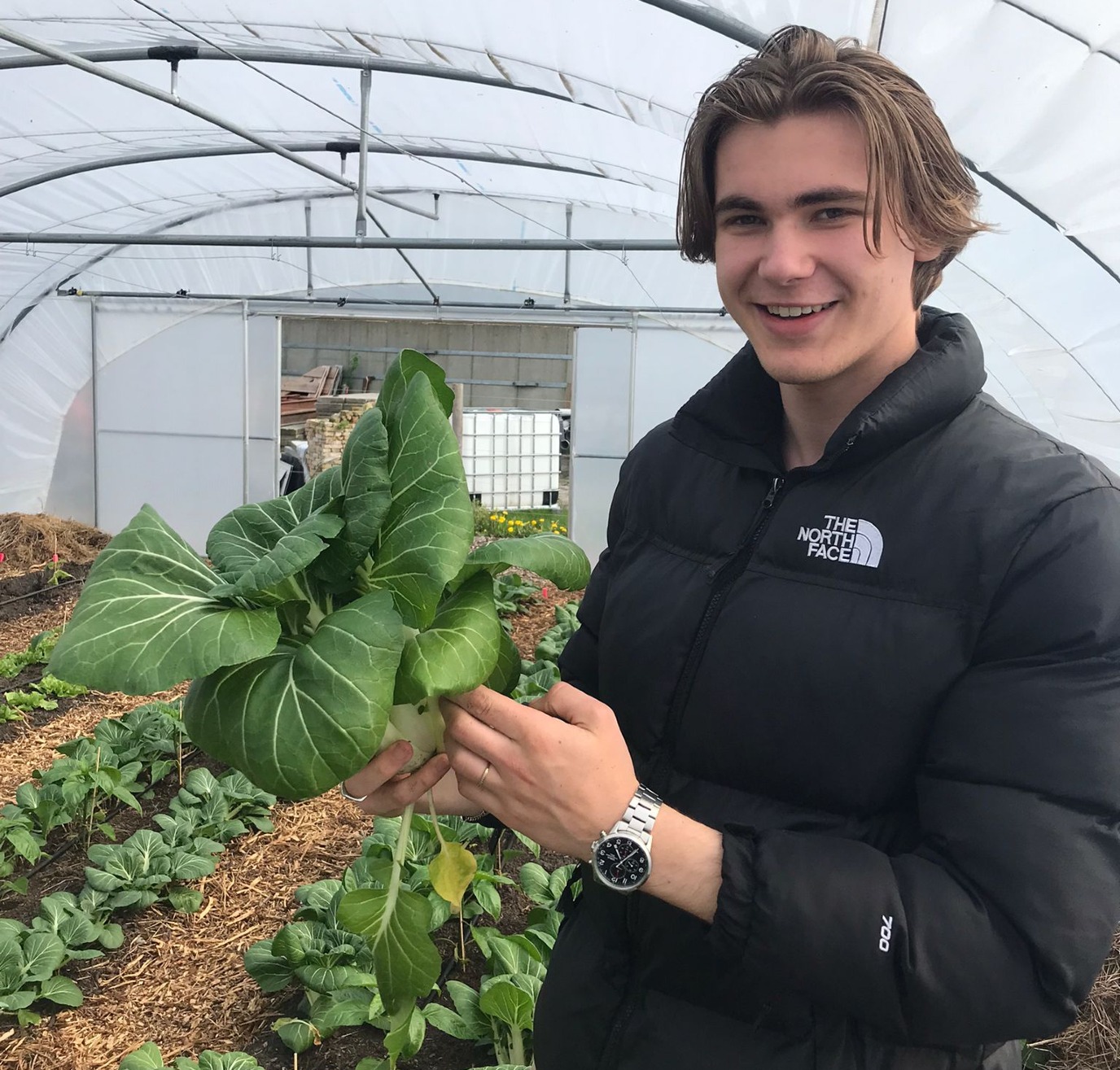Impact: The obstacles and opportunities in establishing food gardens

In the coming weeks the nominees for the Ben Feringa Impact Award (BFIA) 2024 will introduce themselves and their impactful research or project. This week: Leslie Knigge, Martin Ottens en Yasmin Madsen, nominee in the category 'student' for their master thesis. 'As part of our Living Lab research internship, we conducted research for the NGO, Stichting Groninger Voedseltuinen'.
Who are you?
We are Leslie Knigge, Martin Ottens and Yasmin Madsen. We are undergraduate students from the ‘Global Responsibility & Leadership’ degree. As part of our Living Lab research internship, we conducted research for the NGO, Stichting Groninger Voedseltuinen.
At which faculty do you study?
We are part of the Campus Fryslân faculty, which is a faculty that focuses on sustainable transitions and governance.
What is your research about?
Alongside Stichting Groninger Voedseltuinen, and the municipality of Westerkwartier, we conducted qualitative research on the obstacles and opportunities in establishing food gardens (community-supported agriculture), specifically in Westerkwartier. Community supported agriculture (CSA) refers to small-scale agriculture that allows producers to sell directly to the consumer and engages consumers to help sustain the garden. Main obstacles were systemic barriers within the municipality such as a lack of knowledge and vision for food gardens, financial barriers, the duration of approval and the area development plan. Therefore, the main recommendation calls for clear guidelines within the municipality to overcome named barriers of establishing a food garden. Participants advised for a more integrated approach to local issues and the collaboration with the community and other organizations.

What is the impact of your research and how could it help society?
Our research led us to create a report and a roadmap to simply visualize the obstacles that are hindering the establishment of food gardens in the municipality of Westerkwartier. For both the NGO and the municipality, the roadmap turned out very useful as it conceptualized the specific obstacles that CSA gardeners face for the first time and allows for a more profound discourse to solutions within the municipality. Further, the recommendations provided give advice on how to tackle the identified obstacles, keeping the different parties in mind. The conversation between the NGO and the municipality is thus enriched by our research as food gardens were conceptualized, obstacles were identified, and solutions were suggested.
This work, consequently, promotes the implementation of community supported agriculture which has great opportunities for social inclusion, the fight against poverty, sustainable food production and healthy diets for the Dutch population. The concept of food gardens is crucial in our way towards a more sustainable future and their implementation should be facilitated by the local governments, rather than being met with skepticism or other barriers.
What is your motivation for the research? What has it taught you?
Food is an integral part of our everyday lives. And yet the dominant food system that we have today is environmentally harmful (e.g. reduces agrobiodiversity), poses a risk on human health (e.g. quality of products) and can create/reinforce inequalities (i.e. accessibility to food). Therefore, a chance to research an alternative food system that is decentralised and community-based was of great interest to us.
During our research we were so inspired by the gardeners we met. Although their journeys differed drastically, their aspirations to better their community and environment was clearly seen. We learnt that CSA is an impactful possibility for communities in the Netherlands, and we firmly believe that a transition to smaller scale farming could benefit the people and the planet.
More news
-
15 September 2025
Successful visit to the UG by Rector of Institut Teknologi Bandung
